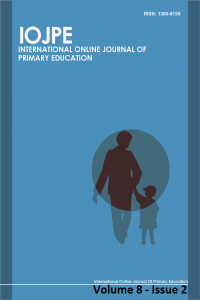THE SOCIAL SECURITY SYSTEM IN THE GRIP OF UNIVERSAL HUMAN RIGHTS AND COST: AN ASSESSMENT ON TURKISH EDUCATION SECTOR
Abstract
As in many countries, there is a pressure on social security system of Turkey to reduce overall costs and increase savings at the same time. While the private sector responds these pressures by increasing flexible and atypical working types as expected, surprisingly, the public sector increasingly applies similar strategies. In this context, the education sector is exposed to various employment reforms and regulations. In this sense, more unsecured practices such as paid teaching and fixed-term contracts are replacing indefinite term job contracts both in private and public sectors. The negative side of this process is the unequal dual structure where a group of teachers are employed under indefinite term job contracts with stable social security coverage and where even a larger group of teachers are employed with fixed-term job contracts and covered only within their teaching period. These teachers, who are excluded from formal right-based social security system, inevitably, replace traditional and informal social protection networks instead. Consequently, the education sector in Turkey has become one of the most vulnerable sectors, where people intensely use their informal networks to overcome the social protection crisis they face. Therefore, social security has lost its core feature of being a universal human right in Turkish education sector as confirmed by the qualitative research of this study. The findings portray that governments in Turkey are breaking away from rights-based social protection policies at least in education sector, and informal protection mechanisms such as familial solidarity and/or charity are getting stronger. In other words, charity-based social protection strategy has become the most common way to get access to social protection and to overcome the cost pressures in the social security system.
References
- Alagöz, İ. (2016). The Problems of the Teachers Working in the Private Schools in the context of the Divided Labor Market, Master Thesis, Ankara University, Ankara, 2016
- Alper, Y. (2015), the Social Security Right and the Funding of the Social Security, VII. Social Human Right Symposium, 2015
- Altin, İ. (2010). The Social Security System and the Analysis of the Turkish Social Security System, Master Thesis, 2010
- Aydoğan, E. (2008). The Restructuring and the Privatization Steps in the Education System, Homeland, Politics, Governance, 2008, Vol. 3, No. 6, pp.166-187
- Doğan, M. S. (1999). The Ottoman Social Security Institutions in terms of the Social History, Sakarya University Press, No. 41, Sakarya, 1999
- Durmaz, O. S. (2014). Being a Teacher in Turkey, Nota Bene Press, 2014, pp.304 Education Union, The Privatization Application Report in Education, 2007
- Gökbayrak, Ş. (2010). Work and Society: The Transformation of the Social Security in Turkey, Ankara University, 2010, pp.141-162
- Kablay, S., A. (2014). Look at the Flexibility in the Public Employment, Universal Culture Library, Istanbul, 2014, pp.158-184
- Keskin Demirer, D. (2012). The Marketization in Education and the Transformation in the Teacher Labor, Kocaeli University, 2012
- Türk-İş (1992). 14. Congress of Working Economy and Industrial Relations, Istanbul University, 2012 Yazgan, T., The Social Security Notes for the Economists, Kutyay Press, Publication No. 12, Istanbul, 1992
Details
| Primary Language | English |
|---|---|
| Subjects | Other Fields of Education |
| Journal Section | Research Articles |
| Authors | |
| Publication Date | December 31, 2019 |
| Published in Issue | Year 2019 Volume: 8 Issue: 2 |
Creative Commons Licenses

All articles published in International Online Journal of Primary Education's content is licensed under a Creative Commons Attribution 4.0 International License (CC BY 4.0).
(Counter start: February 28, 2021)





